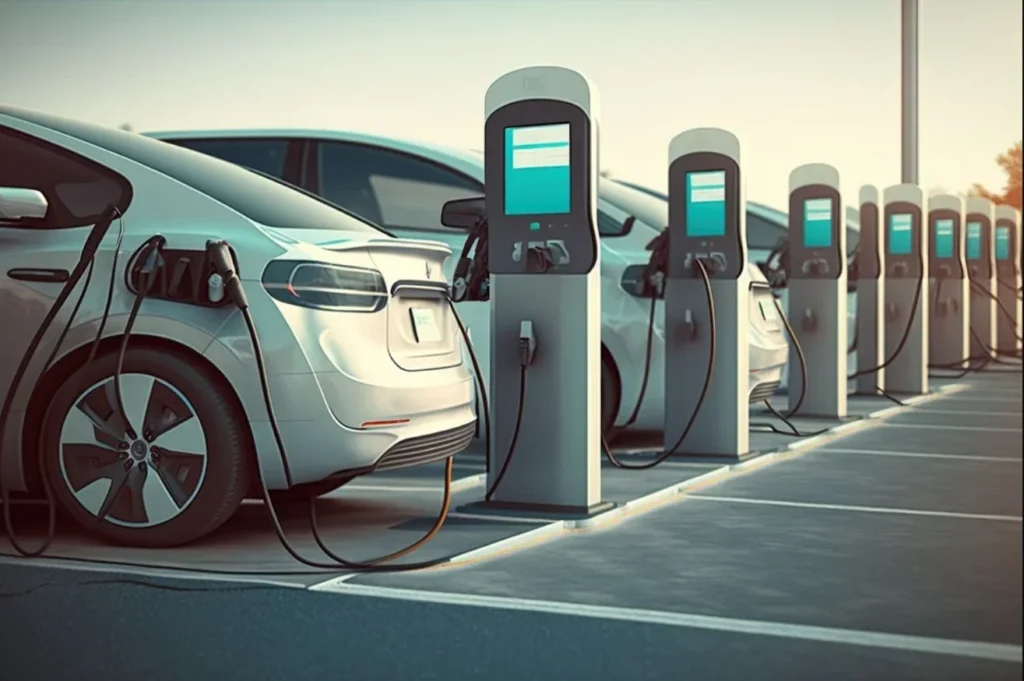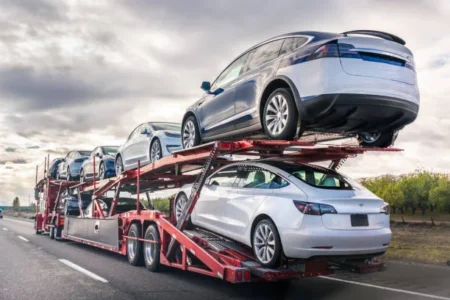As the demand for electric vehicles (EVs) surges, Tesla charging stations have become crucial for EV owners seeking convenient, reliable charging solutions. For entrepreneurs looking to capitalize on this expanding market, starting a Tesla charging station franchise offers a lucrative opportunity. But, what does it cost to start a Tesla charging station franchise? In this article, we’ll explore the financial requirements, profit potential, and operational aspects associated with launching a Tesla charging station franchise.
Why Tesla Charging Stations Are a Smart Investment
With the EV industry booming globally, Tesla Charging Station Franchise Cost have gained popularity as more people adopt Tesla and other electric vehicles. Unlike traditional gas stations, charging stations for EVs, especially Tesla-branded, are much in demand as they offer quick, reliable, and convenient access to power. Additionally, Tesla’s global reputation adds a sense of trust and security for both investors and customers, increasing the attractiveness of owning a Tesla charging station franchise.
Tesla charging stations cater to a specific, high-income demographic, translating to a strong customer base that values quality, innovation, and sustainability—three pillars of Tesla’s brand identity.
Overview of Tesla Charging Station Franchise Costs
Before diving into the financial requirements, it’s important to understand the unique franchise model of Tesla. While Tesla does not directly offer traditional franchise opportunities, businesses or property owners can partner with Tesla to establish a Tesla charging station on their property. This arrangement differs from other franchises, as the installation and operational costs vary based on location, station type, and associated infrastructure needs.
Initial Installation and Equipment Costs
The primary cost associated with a Tesla charging station franchise is the installation and equipment cost. This expense depends heavily on factors such as the station’s location, charging capacity, and whether it’s a Level 2 or Supercharger station. Here is a breakdown of the expected initial costs:
- Charging Equipment: Tesla chargers, particularly Superchargers, are costly, with a single unit ranging from $5,000 to $10,000.
- Electrical Infrastructure: Installing a Supercharger requires high-voltage power connections and a dedicated transformer, which can increase the cost significantly. The average cost for electrical infrastructure and labor may range between $20,000 and $50,000.
- Construction and Installation: The construction and installation fees vary based on the existing infrastructure. Expect to budget around $25,000 to $100,000 for this process, depending on the site’s condition and location.
- Permitting Fees: Local zoning regulations may impose permitting fees, which can range from $1,000 to $5,000. These fees cover the application and processing expenses needed to comply with local requirements.
Total Estimated Initial Cost: The cumulative costs for starting a Tesla charging station franchise can range from $50,000 to $200,000, depending on the factors listed above.
Operating Costs
Aside from the initial setup costs, ongoing operating costs are associated with running a Tesla charging station franchise. These costs typically include:
- Electricity Expenses: Electricity is the largest recurring expense. Tesla Superchargers have a high electricity consumption rate due to fast-charging capabilities, which means monthly electricity bills can vary based on usage but generally range from $1,000 to $5,000.
- Maintenance and Repairs: Routine maintenance and potential repairs for high-use chargers are necessary. These costs may amount to $500 to $2,000 per month, depending on station usage.
- Insurance: Liability insurance is required to cover potential damages or accidents. Insurance costs can vary based on location and policy but usually range from $1,000 to $3,000 per year.
- Operational Staff (If Needed): Although Tesla stations are largely self-operating, some locations may require part-time staff for customer assistance and security. This cost depends on location and shifts required.
Total Estimated Operating Costs: Monthly operating expenses for a Tesla charging station typically range between $2,000 and $7,000, based on factors like usage and maintenance needs.
Revenue Potential and Profitability
Tesla charging stations generate revenue from fees charged to Tesla owners who use the chargers. Here’s a breakdown of the revenue potential:
- Charging Fees: Tesla typically charges customers per kWh used, and this rate varies by region. Depending on the local cost per kWh and usage rates, a single station could generate between $5,000 and $20,000 monthly. This amount depends on traffic volume and station location.
- Additional Revenue Streams: Some stations integrate extra amenities like a café, Wi-Fi access, and other facilities, attracting a wider customer base and providing a boost to overall revenue.
- Profit Margin: After accounting for operating costs, the average profit margin for Tesla charging stations can vary between 10% and 30%. Stations in high-traffic areas generally achieve higher profitability due to increased charging activity.
Tesla Charging Station Types
Tesla offers two main types of charging options: Level 2 Chargers and Superchargers. Understanding the differences can help in planning your station’s layout and budgeting.
- Level 2 Chargers: Level 2 chargers are typically slower and more affordable than Superchargers. They can take up to eight hours to fully charge a Tesla vehicle but are suitable for overnight or long-term parking areas. Level 2 stations generally cost less to install and operate, making them an economical choice for locations with lower traffic.
- Superchargers: Superchargers are Tesla’s flagship chargers, capable of delivering a full charge in under an hour. Superchargers require higher installation and maintenance costs but are more profitable, particularly in high-traffic areas such as shopping centers, highways, and urban hubs.
Location Considerations for a Tesla Charging Station Franchise
The location of your Tesla charging station is a crucial factor for success. High-traffic areas near popular destinations or highways increase the likelihood of profitability. Here are some considerations for selecting an optimal location:
- Proximity to Highways and Popular Destinations: Installing a Tesla charging station near highways or popular spots can attract more users.
- Access to High Voltage Infrastructure: Superchargers require high-voltage infrastructure, making it necessary to choose locations with existing or easily accessible power grids.
- Visibility and Accessibility: Locations with high visibility and easy access from major roads will encourage higher usage rates.
- Availability of Amenities: Stations near amenities like restaurants, restrooms, and retail spaces increase customer convenience and add to the station’s appeal.
Requirements for Partnering with Tesla
Tesla’s partnership program for charging stations involves meeting specific requirements. Here are some common requirements for securing a Tesla charging station partnership:
- Site Specifications: Tesla evaluates locations based on their size, power availability, and ease of access. Locations should have sufficient parking spaces to accommodate chargers and customer vehicles.
- Electricity Infrastructure: Tesla partners must have access to the necessary high-voltage connections to support Superchargers.
- Compliance with Tesla’s Standards: Partners are required to adhere to Tesla’s guidelines for branding, maintenance, and customer service.
- Location Exclusivity: In some cases, Tesla may request exclusivity in specific regions to limit competition and maximize revenue potential.
Is a Tesla Charging Station Franchise Worth the Investment?
Investing in a Tesla charging station franchise can be highly profitable, especially as EV adoption continues to rise. With the right location, station type, and customer volume, franchise owners can secure a stable revenue stream while contributing to sustainable energy solutions.
In conclusion, the Tesla charging station franchise cost involves significant initial and operational expenses. However, the potential for profitability in high-traffic locations is substantial, thanks to Tesla’s trusted brand and the growing demand for EV charging stations. For investors committed to sustainability and innovation, starting a Tesla charging station franchise represents a valuable opportunity in a burgeoning market.
Time Squares News guides you through the latest trends and stories, providing valuable information and perspectives on current events and more.










